Nicholas Negroponte has been predicting—and creating—the future for decades. In this TED talk he walks us through those decades, pointing out what the future looked like from many vantage points in the past, and ending with a startling prediction. Given his track record for correctly predicting the future, do you think he’s right on this one?
[ted id=2043 lang=en]
ted.com/talks/nicholas_negroponte_a_30_year_history_of_the_future
Category: Chapter 1 Exploring Our Digital Planet
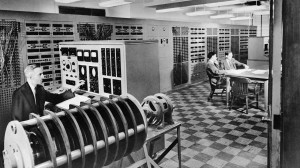 In Digital Planet we tell the stories of many of the pioneers of the digital age—people who invented or discovered ways of doing things that weren’t previously possible. In his book The Innovators, Walter Isaacson weaves many of those stories, and others, together into a larger story—the story of the creation of the Internet. In this Fresh Air interview, he makes it clear that great changes often result from the work of many people over time.
In Digital Planet we tell the stories of many of the pioneers of the digital age—people who invented or discovered ways of doing things that weren’t previously possible. In his book The Innovators, Walter Isaacson weaves many of those stories, and others, together into a larger story—the story of the creation of the Internet. In this Fresh Air interview, he makes it clear that great changes often result from the work of many people over time.
npr.org/blogs/alltechconsidered/2014/10/06/353269811/how-the-cold-war-and-george-orwell-helped-make-the-internet-what-it-is
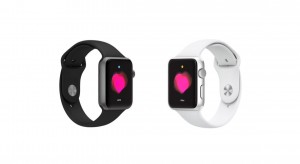 As one of the most innovative and profitable companies on the planet, Apple makes headlines when it makes announcements. This week Apple announced several important new products, each of which represents trends in a fast changing industry. Larger iPhones bridge the gap between smart phones and tablets. A mobile payments system designed to bypasses credit cards and protect privacy and security of users. And Apple’s long-awaited entry into the wearable computer market that has humbled several other companies. Technology writer Steven Levy’s thought-provoking piece for Medium suggests that the Apple watch may signal the beginning of a new, much more intimate type of interface between humans and their digital devices.
As one of the most innovative and profitable companies on the planet, Apple makes headlines when it makes announcements. This week Apple announced several important new products, each of which represents trends in a fast changing industry. Larger iPhones bridge the gap between smart phones and tablets. A mobile payments system designed to bypasses credit cards and protect privacy and security of users. And Apple’s long-awaited entry into the wearable computer market that has humbled several other companies. Technology writer Steven Levy’s thought-provoking piece for Medium suggests that the Apple watch may signal the beginning of a new, much more intimate type of interface between humans and their digital devices.
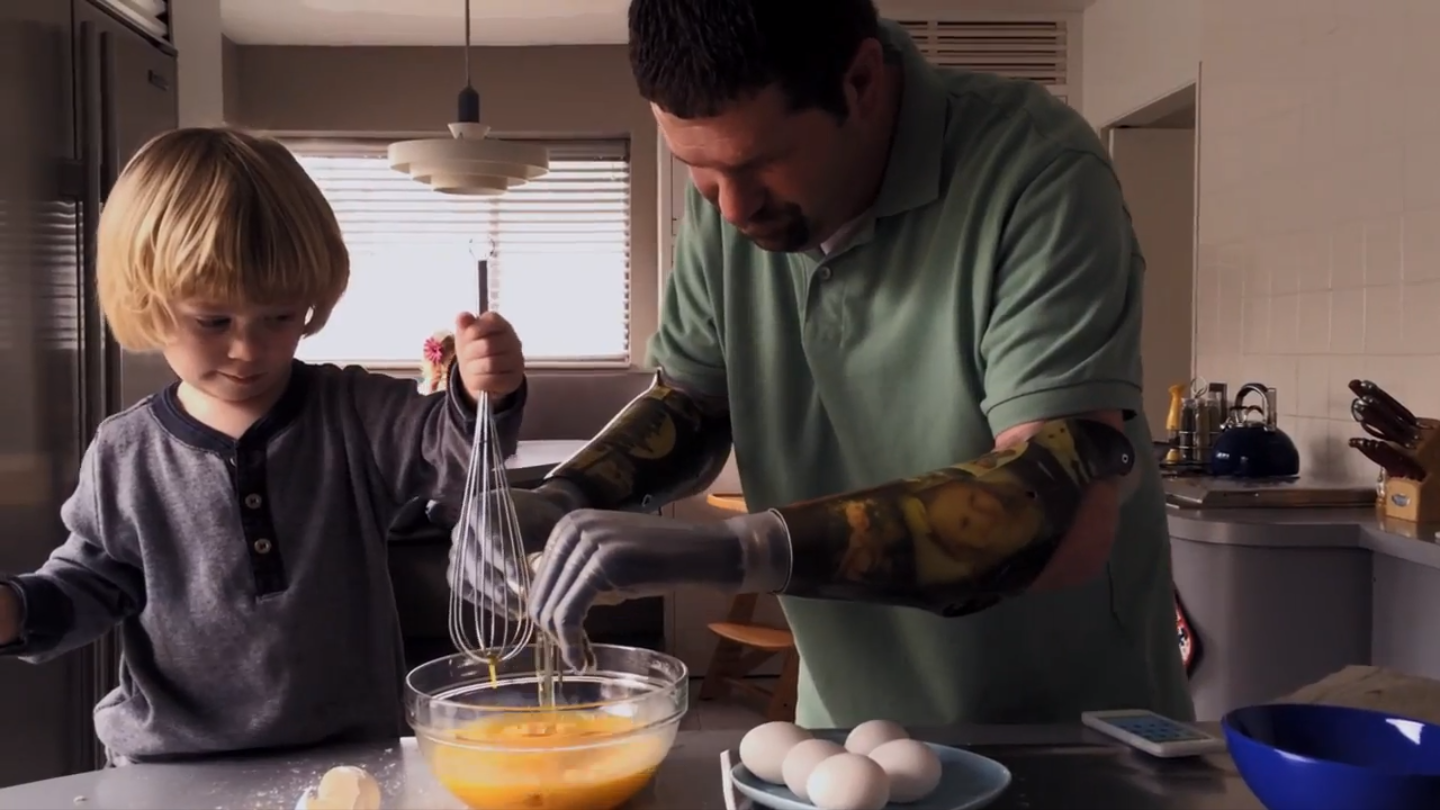 In 1984 Apple rocked the advertising world with a Superbowl commercial directed by Ridley Scott. The commercial depicted a futuristic dystopian dictatorship being challenged by a courageous young heroine with a vision; a not-at-all-subtle metaphor for the soon-to-be-introduced Macintosh computer. The commercial won countless awards when it was aired, and many of the revolutionary features of the Macintosh were quickly adopted by Microsoft, the company that the commercial suggested was the enemy of freedom. Three decades later, Apple is no longer a feisty young rebel.
In 1984 Apple rocked the advertising world with a Superbowl commercial directed by Ridley Scott. The commercial depicted a futuristic dystopian dictatorship being challenged by a courageous young heroine with a vision; a not-at-all-subtle metaphor for the soon-to-be-introduced Macintosh computer. The commercial won countless awards when it was aired, and many of the revolutionary features of the Macintosh were quickly adopted by Microsoft, the company that the commercial suggested was the enemy of freedom. Three decades later, Apple is no longer a feisty young rebel.
This new Apple commercial, filmed completely with iPhones, captures a much more optimistic vision of the role of digital technology in our future. (Ironically, it had a lot in common with Microsoft’s Super Bowl ad.) What will Apple’s (or Microsoft’s) visionary commercials look like 30 years from now?
Read more about the ad at huffingtonpost.com/2014/02/03/apple-mac-ad-30th-anniversary_n_4718255.html.
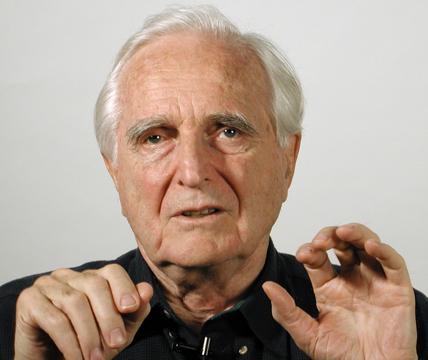 If you’re reading this, take a moment to thank Doug Engelbart. At a time when computers were big, expensive, isolated, finicky, and terribly difficult to program and use, this unassuming genius had a vision of a digital future that was so far ahead of its time that few of his peers took it seriously. He is widely credited with inventing the mouse, but that’s just a tiny part of his grand vision. Graphical user interfaces, interactive computing, the Internet, and more, owe their existence at least in part to Engelbart’s visionary work. Thank you, Doug.
If you’re reading this, take a moment to thank Doug Engelbart. At a time when computers were big, expensive, isolated, finicky, and terribly difficult to program and use, this unassuming genius had a vision of a digital future that was so far ahead of its time that few of his peers took it seriously. He is widely credited with inventing the mouse, but that’s just a tiny part of his grand vision. Graphical user interfaces, interactive computing, the Internet, and more, owe their existence at least in part to Engelbart’s visionary work. Thank you, Doug.
http://www.nytimes.com/2013/07/04/technology/douglas-c-engelbart-inventor-of-the-computer-mouse-dies-at-88.html?pagewanted=1&_r=1&smid=tw-share
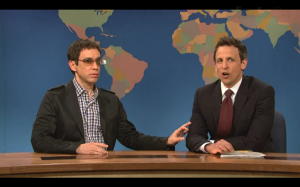 When Apple released the iPhone, the world changed. People were carrying powerful computers in their pockets and purses. Developers released a bevy of creative apps to harness that always-available computing power. Today it’s hard to imagine a world without smart phones. Could Google Glass, the wear-on-your-face computer from Google, be the beginning of the next revolution in personal computing? This short NPR story explains how early adopters plan to use their prototype high-tech specs.
When Apple released the iPhone, the world changed. People were carrying powerful computers in their pockets and purses. Developers released a bevy of creative apps to harness that always-available computing power. Today it’s hard to imagine a world without smart phones. Could Google Glass, the wear-on-your-face computer from Google, be the beginning of the next revolution in personal computing? This short NPR story explains how early adopters plan to use their prototype high-tech specs.
npr.org/blogs/alltechconsidered/2013/04/17/177557810/Seeing-The-World-Through-Google-Colored-Glasses
Of course, not everyone views Google Glass through such rose-colored lenses. This Saturday Night Live skit mocks the idea that Google Glass can be used discreetly; other detractors question our need to become even more dependent on our technology.
mashable.com/2013/05/05/snl-google-glass-parody/
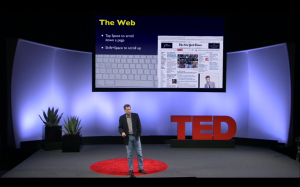 David Pogue is one of the most prolific–and entertaining–tech writers we know. In this short TED talk, he runs through a list of tips that can save you time every day. Don’t miss it.
David Pogue is one of the most prolific–and entertaining–tech writers we know. In this short TED talk, he runs through a list of tips that can save you time every day. Don’t miss it.
Rumors of a Facebook phone have rattled around the tech world for quite a while. Today Facebook announced not a a phone, but software that can convert many Android phones into Facebook machines. Facebook is available in app form on most smart phones. But the new Facebook Home software will replace the Android home screen with a Facebook-centered home, making it possible for social networkers to keep Facebook at the center of their phone experiences. Will Android phone users click Like?
http://www.wired.com/gadgetlab/2013/04/facebook-android-home-phone/?cid=6882274
The balance of power is shifting westward in the high-stakes competition for the most powerful computer in the world. The latest US champ is based in part on technology pioneered in the gaming industry. Like most supercomputers, this one will be used to produce ever-more-accurate simulations for scientific research and engineering applications.
money.cnn.com/2012/10/29/technology/innovation/titan-supercomputer/
Microsoft will soon offer two new versions of its ubiquitous Windows operating system. Windows 8 is designed to replace Windows 7 as the flagship PC OS. Windows RT will run mostly on Microsoft’s new Surface and other tablet devices. This CNET article gives an overview of the two OSs and how they fit into a world where the line between tablets and laptops is blurred by all kinds of hybrid devices.
reviews.cnet.com/8301-33642_7-57536310-292/windows-8-buying-guide/